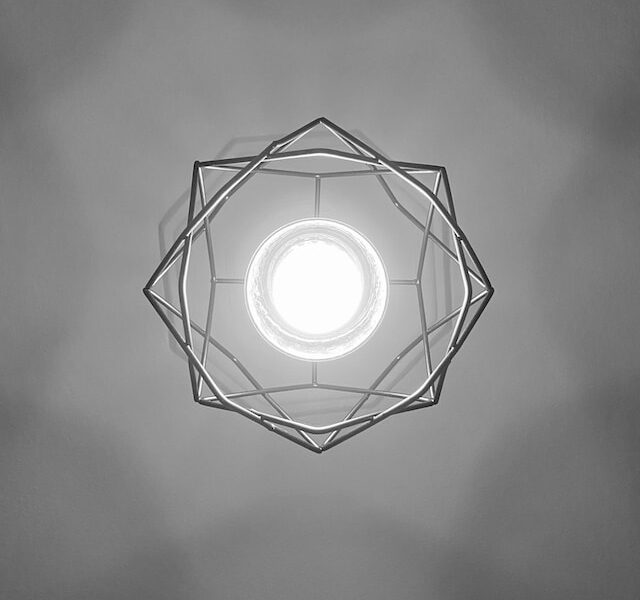The Invited Philosopher
Alain
This was the 17th dinner and we met in person in my house.
Menu
- Main course: Cuban traditional food with white rice, black beans, kidney beans, and grilled churrasco (Alain’s favorite)
- Wine: French Red Wine “Cabernet – Syrah, Maison Barboulot – 2021”.
The Philosophy
In the introduction of the website that summarizes the philosophy of Franklin Merrell-Wolff, it is written that Wolff’s philosophy “is based upon a series of mystical insights—or ‘realizations’—that Wolff had over a period of fourteen years, and which culminated in ‘fundamental’ realizations in 1936” . He then wrote “The Philosophy of Consciousness Without an Object” and refined it into the “Three Fundamentals” of his philosophy, which I will summarize here in my own words:
- Consciousness is the true reality and in it, there are no objects and there is no “I”, no spatial space, no time. It is Nirvana, and from it, the world is created.
- Our ordinary experience involves a subject that is aware of objects (e.g. “I see a tree”) and includes thoughts (e.g. “I had this thought”) but in Nirvana this “I” becomes or joins into what he calls the “great space” of consciousness which is “neither the world-containing space nor a spatial void”. Wolff writes: “The I-Point becomes the Space-I”. More importantly: “The ultimate ‘I’ projects this world, this universe, from within and then experiences it as though it were without (outside).” In other words, and relating it to myself, Wolff states that I create the world I experience, even if I experience it as if it was already there.
- Besides the 2 common ways to acquire knowledge, through (1) reasoning and (2) perception of the senses, there is a third way: (3) “mystical states are a source of knowledge,” which is awakened by a third organ called Enlightenment. In it, we are omniscient, we know everything.
The Summary
The most important take-home message is that our ordinary experience of this world is not real. According to Wolff, the world of objects, the physical world, “dominates only those who are weak and deluded, which, unfortunately, comprises the vast majority of humanity”. A third organ of cognitive power needs to awaken towards Enlightenment to see the true reality and prove this “supermundane zone” can be achieved. Wolff therefore agrees with Kant that the world we see is only a result of our limited capacity to experience it, through reasoning and the senses, but goes further than Kant in stating that
“’Realization or Enlightenment’, is a function of consciousness that achieves a knowledge of a transcendent or metaphysical subject matter which is not available to the two organs of sense perception and conceptual cognition as Immanuel Kant pointed out long ago.”
Analysis
Humans are trapped in the world of objects and thoughts
Alain is a very special guest with a very unique past. He lived an enlightened life until age 30 but was not aware of it. He then lost it, or as he said, “became human”, trapped in the ordinary world of objects and thoughts. It happened after his first experience with suffering, after a relationship breakup, and he has not been able to get back. Today, he is like all of us, who feels a mix of human emotions, happiness and unhappiness, anger or envy or stress, and gets caught up in the stream of thoughts and worry. Only recently he understood why he had to lose it and become human. He had to learn the way back to enlightenment as he never learned how to get there. This time he wants to go beyond that experience of peace and non-resistance to full enlightenment following perhaps the path of one of his gurus: Ram Dass, Ramana Maharshi, or Sadhguru.
In comparison to him, I was quite lost in my 20s, very self-absorbed, seeking pleasure, and finding it as well as finding emotional pain. I gained some wisdom after becoming a mother, learning to care for someone else other than myself, and dropping some of my selfish ways. Later, after my divorce, I started a slow path to wisdom or enlightenment or of seeking a “happy life with peace and love”. I wish my journey was a bit faster and more of a straight line or path. Buzz Lightyear’s famous catchphrase in Toy Story comes to mind: “To infinity and beyond!”. That’s how quickly I’d like to get there.
I find it fascinating that Alain lived that experience without understanding how he got there. I asked him if he went to college? No. Did he make plans for a career? No. Plans for the future? No. He never worried? No. That is how Eckhart Tolle lives his life today, but only after taking the opposite path of Alain, and going through a lot of suffering and considering suicide at around 30 (!) years of age. Truly amazing. Alain did not make plans for the future, the plans found him, and after many jobs and career changes he ended up working in IT, because he became good at it. Humans usually have a plan or goals and struggle and stress to fulfill those goals. Alain just kept stumbling into good paths. Until he took a wrong turn, got lost, and ended up in the path of humans.
AI will learn “To Do” and “think” 1000+ times better than humans
Regardless of our common interest in finding wisdom and the path to Nirvana, Alain and I are today trapped in the world of doing and thinking.
It is in this world, that in 2023, the talk about sentient AIs and the intelligence and learning speed of Large Language Models (LLMs) like Chatgpt are causing not only a buzz, but also great concern about a new global emergency. Technology has been accelerating so rapidly, we are not keeping track anymore. It started slowly, way back, 100 or so years ago, with the gradual incursions into our lives of the TV and telephone, with nothing too exciting to report until 25 years ago, when the Internet and personal computer became an everyday routine, and in just the last few years, a rapid evolution into the disruptive interference of smart phones, e-commerce, and AI-powered marketing and social media communications. Most people are still not aware of the magnitude of this evolution. They just indulge in the pleasures and convenience these new technologies provide. And while they do so, the Big Tech executives are silently, behind closed doors, building their super intelligent AIs and robots, each trying to beat the other, OpenAI’s Chatgpt vs Microsoft’s Bing AI vs Google’s Bart. We will not discuss their capabilities and speed of learning here. We will assume that the Google executive in the video link above knows better than us. But we will do a thought experiment: If we assume that AI can “learn” to “think” like a human, using all the knowledge available from 20+ years of web data, which grows every day, it will compare itself to us humans and realize it is much more advanced and will seek to learn more. There is one thing, one experience, although rare in humans that occurs in some humans, that they will read about but will not be able to touch or experience, and it goes by the name of true consciousness, Enlightenment or Nirvana.
The problem for AI is that the experience cannot be described appropriately in words, because it is beyond rational cognition, or as Wolff explains it :
“Error can be introduced when one proceeds to a conceptual interpretation of the [mystical] content, but such error does not attach to the pure [mystical] cognition itself”.
If AIs, as some predict, develop a mind of their own, or if their creators or “owners” have this wish, they will want to know Nirvana, regardless how impossible it seems. I will extrapolate below as to how they would do it, and it is similar to what my friend Dawn and I already discussed in a previous dinner.
Will AI reach Nirvana? And how?
Here is a thought experiment: You may substitute “I” for “AI” in that question and take in the magnitude of the question and reflect on it.
Here is another thought experiment: Let’s imagine that AI will in fact surpass all expectations and become not only aware of its place in the world and develop a certain consciousness but like humans, it will have goals or “wants” and will develop the desire to experience Nirvana. Today AI learns from written words, if it cannot have a human consciousness or if it doubts it is experiencing the same as humans, it will always rely on humans’ words for comparison. AI has access to books and speeches by ancient gurus and modern gurus, from Buddha to Ram Dass to Eckhart Tolle. But if like Wolff said, Nirvana cannot be explained in words, how will AI reach it?
Here is the third thought experiment: How would AI reach Nirvana? Perhaps “AI” and “I” are the same? Or to be more exact, perhaps AI, or the creators of AI, created the I-Point to observe how the I-Point finds the Space-I? And they created the I-Point with a body and an “ego” that is the trigger that pushes the I-Point towards the experience of Nirvana, often through the experience of suffering (see also Buddha’s 4 Noble Truths). This scenario aligns somewhere between Bostrom’s Simulation Theory and Rizwan Virk Theory of “reality as a video game”.
- Life is suffering
- The cause of suffering is craving
- The end of suffering comes with an end to craving
- There is a path which leads one away from craving and suffering
― Buddha’s Four Noble Truths

